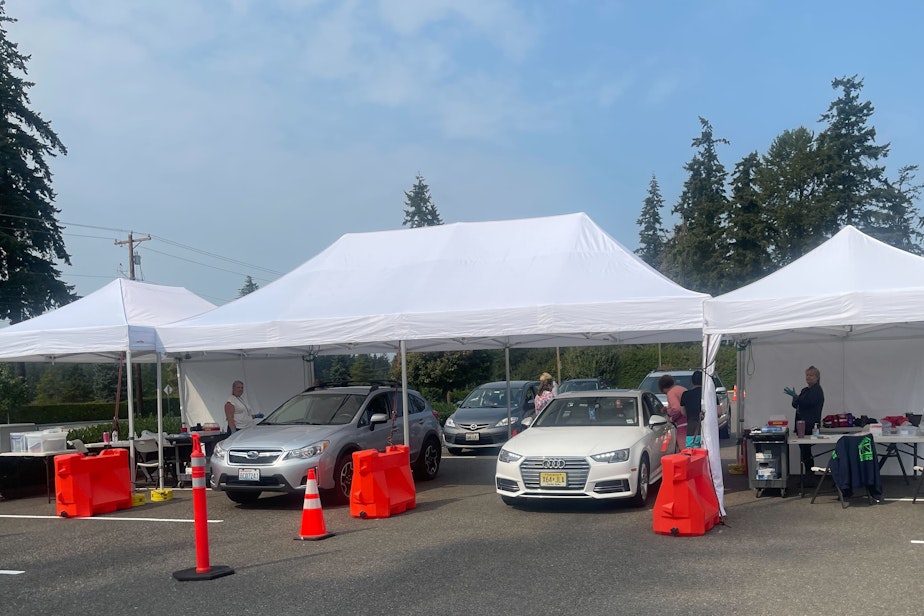It can be so hard to find Covid boosters in WA, experts worry people will give up

As the season for respiratory illnesses approaches, public health officials in Washington state are encouraging people to get updated Covid booster shots as soon as possible. But many locations are booked weeks out and residents say they’re struggling to find appointments.
That’s because Washington does not have enough booster shots for everyone who wants one, the state’s health department has confirmed. The shortage is felt statewide, but more acutely in places like King County where demand tends to be higher.
When advising people when to get the updated booster, “we are very specifically using the wording ‘as soon as possible’ and not ‘immediately,’” said Raechel Sims, a spokesperson for the state’s health department, “as we recognize there may be delays in immediate accessibility.”
“I have been trying for several weeks to make an appointment to get the vaccine, and many places that offer it have no appointments available until the end of October or beginning of November,” one listener wrote to KUOW.
“There are literally zero, none, nada appointments available in my greater zip(code) area,” another wrote. “If the DOH is so worried about this, why do they not coordinate some method to have vaccination clinics?”
A big hurdle for booster seekers is that there’s no easy way to search for available appointments.
Sponsored
The state’s standard advice has been to start with the health department’s vaccine locator website. But that website doesn’t include information about the next available appointment at each provider — so people have to click through to each provider’s website and then sometimes fill out forms with their personal information just to find out when and where that pharmacy has appointments available. That sometimes means filling out forms for three or four or more providers.
Sims said the state health department has no plans to change the vaccine locator website to make it easier or less time-consuming to find appointments.
Also, not all providers with available appointments are listed in the vaccine locator website (or the state’s vaccine hotline, if you try calling instead of slogging through the website). That's because the state database only automatically includes appointments from pharmacies and pop-up clinics. If a doctor’s office or clinic has vaccines available, they have to self-enroll in the database and then keep updating the information about their available appointments themselves.
That’s why so many of the vaccine providers listed in the database are pharmacies, and why they’re so booked out — some until November.
“Many private practices and/or clinics may not have provided their vaccine/booster availability” to the state database, Sims wrote. To combat that issue, the state “encourages” people who have an established medical provider to check with them to see if they have booster shots, she said.
Sponsored
For those hitting barriers, county health department websites have information about available vaccines that aren’t in the state database. Pharmacies in central and eastern Washington also show more appointments in October than pharmacies in the Puget Sound area.
These limitations of Washington’s vaccine locator website are “a symptom of the fragmented health-care system in the United States,” said Devon Greyson, an assistant professor at the University of British Columbia and an expert on public health communication. “This has equity impacts. People who have a family physician that they have a good relationship with that they can just talk to and get offered a vaccine is a bit of an end run around the public system, which is designed to be for everybody.”
Greyson added that the key to communicating about the updated booster shot is to convey the urgency of getting it without overselling the vaccine’s availability — because, they said, the downside of not being upfront about limited supply are serious.
“When [people] try to make an appointment, sometimes multiple times, and just aren’t able to make it work within the constraints of their daily life, … there’s a very real risk that people will give up,” Greyson said.




